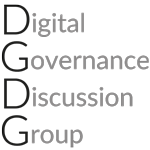By Peixi Xu.
Despite the removal of considerable parts of contents which are regarded as controversial in the second version of the Global Digital Compact (GDC), the third version of GDC is now being challenged by member states who chose to break the silence procedure.
However, this moment should not be understood as a setback of this prominent process, but as a moment to recognize the complex, encompassing, evolutionary, and interwoven nature of digital issues, where governance issues as diverse as Internet technical resources, data, online content, and most recently AI, are mixing altogether.
The initial framework about GDC used to describe global digital governance in 7 topics: (1) connectivity, (2) avoiding Internet fragmentation, (3) data protection, (4) applying human rights online, (5) accountability for online content, (6) regulating AI, and (7) digital commons. After rounds of consultations and talks, the third version of GDC now combine and integrate the 7 topics into 5 areas: (1) digital divide, (2) digital economy, (3) human rights, (4) data, and (5) AI. A renegotiation process perhaps will not bring the document back to the 7-topic framework but may be used to enhance some achievements on the one hand and address some disputes on the other. The following is some observations and comments regarding the third version of GDC based on a leaked text online.
Continue reading “UN Global Digital Compact Talks at a New Moment”